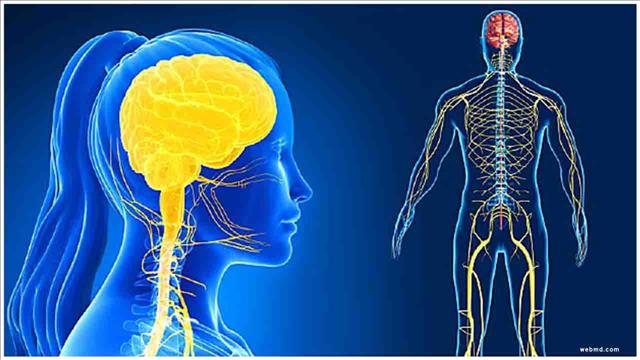
What You Need to Know About the Nervous System
(MENAFN- GAJURA)
The nervous system is one of the most crucial systems in the body as it plays a key role in determining various bodily functions. However, lots of people still don’t have a good understanding of what the nervous system really is. So, this article will explain everything you need to know about the nervous system.
What is the nervous system?
The nervous system refers to the system of the body that is responsible for controlling the communications that determine the actions that your body takes. It also determines the reaction of your body during an emergency. In general, it consists of the brain, nerves, and spinal cord.
The nervous system is categorized into two main parts, which are highlighted below:
The central nervous system (CNS)
The brain and the spinal cord are the two main organs that constitute the central nervous system. Filled with four different types of nerve cells, the CNS has a protective layer that ensures that it doesn’t contact blood and other external elements. Notably, cerebrospinal fluid is a liquid that supplies the central nervous system with nutrients from time to time.
Both the spinal cord and brains are protected by meninges, which are three distinct layers of membranes. Along with the cerebrospinal fluid, these membranes play an essential role in safeguarding the brain.
It should be understood that the nerves serve as the means of connecting the various parts of the body to ensure they can communicate with the CNS. Therefore, if there are problems with the nerves, communication between the CNS and other body areas will be difficult or even impossible.
The peripheral nervous system (PNS)
This part represents all other parts that are connected to the CNS. The autonomic nerves, motor nerves, and sensory nerves form crucial parts of the peripheral nervous system.
- Autonomic nerves – these are the nerves that are capable of acting automatically. That is, they can function on their own. They are classified into sympathetic nerves and parasympathetic nerves.
- Motor nerves – they begin from the CNS and travel to different parts of the body. These nerves always stop in muscles; hence, they are referred to as motor nerves. Motor nerves control all sorts of movements of muscles such as running, walking, singing, fighting, dancing, and talking.
- Sensory nerves – these nerves work in the opposite direction of the motor nerves. Therefore, they are responsible for sending from the other parts of the body to the CNS. The starting points of these motor nerves are sensory organs like skin, eyes, nose, ears, and tongue.
It is worthwhile to note that the spinal cord connects the peripheral nervous system to the central nervous system. However, it still forms one of the parts of the CNS.
What are the functions of the nervous system?
As indicated above, the nervous system is a part of all areas of the body. Therefore, it is not strange that it has a wide range of functions that include:
- Controlling the voluntary movement of the body
- Managing intelligence, memory, and learning through its ability to control feelings and thoughts
- Controlling several basic functions of the body such as sweating, digestion, heartbeat, shivering, and breathing. These are things you do unconsciously
- Controlling senses such as smell, taste, hearing, touch, and sight
- Reacting to any emergency through the help of the sympathetic nervous system
The diseases of the NS and their symptoms
Just like other parts of the body, the nervous system can have problems. So, there are various diseases of the nervous system. These diseases include:
- Stroke
- Epilepsy
- Parkinson’s disease
- Subarachnoid hemorrhage
- Multiple sclerosis
- Alzheimer’s disease
- Amyotrophic lateral sclerosis
- Huntington’s disease
- Meningitis
- Encephalitis
- Epidural abscess
If there is a nervous system emergency, the problems can manifest through different symptoms. Some of the most common symptoms of the nervous system problems are:
- Memory loss
- Headaches
- Fatigue
- Emotional issues
- Numbness of the arm of leg
- Blurry vision
- Loss of coordination
- Loss or weakness of muscle control
- Tremors
- Changes in behavior
- Slurred speech
Treatments for these diseases can come through different means including medications, surgeries, therapy, and other holistic methods.
With the information provided in this article, you now understand what the nervous system is, how it works, its functions, as well as its possible problems.
MENAFN2092020000487111209ID1100828630
Legal Disclaimer:
MENAFN provides the
information “as is” without warranty of any kind. We do not accept
any responsibility or liability for the accuracy, content, images,
videos, licenses, completeness, legality, or reliability of the information
contained in this article. If you have any complaints or copyright
issues related to this article, kindly contact the provider above.


















Comments
No comment